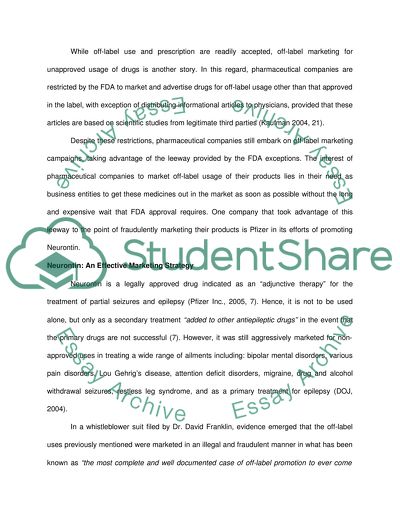Cite this document
(Ethical Issues in Marketing within Pharmaceutical Industry Term Paper, n.d.)
Ethical Issues in Marketing within Pharmaceutical Industry Term Paper. Retrieved from https://studentshare.org/marketing/1523591-ethical-issues-in-marketing
Ethical Issues in Marketing within Pharmaceutical Industry Term Paper. Retrieved from https://studentshare.org/marketing/1523591-ethical-issues-in-marketing
(Ethical Issues in Marketing Within Pharmaceutical Industry Term Paper)
Ethical Issues in Marketing Within Pharmaceutical Industry Term Paper. https://studentshare.org/marketing/1523591-ethical-issues-in-marketing.
Ethical Issues in Marketing Within Pharmaceutical Industry Term Paper. https://studentshare.org/marketing/1523591-ethical-issues-in-marketing.
“Ethical Issues in Marketing Within Pharmaceutical Industry Term Paper”, n.d. https://studentshare.org/marketing/1523591-ethical-issues-in-marketing.


